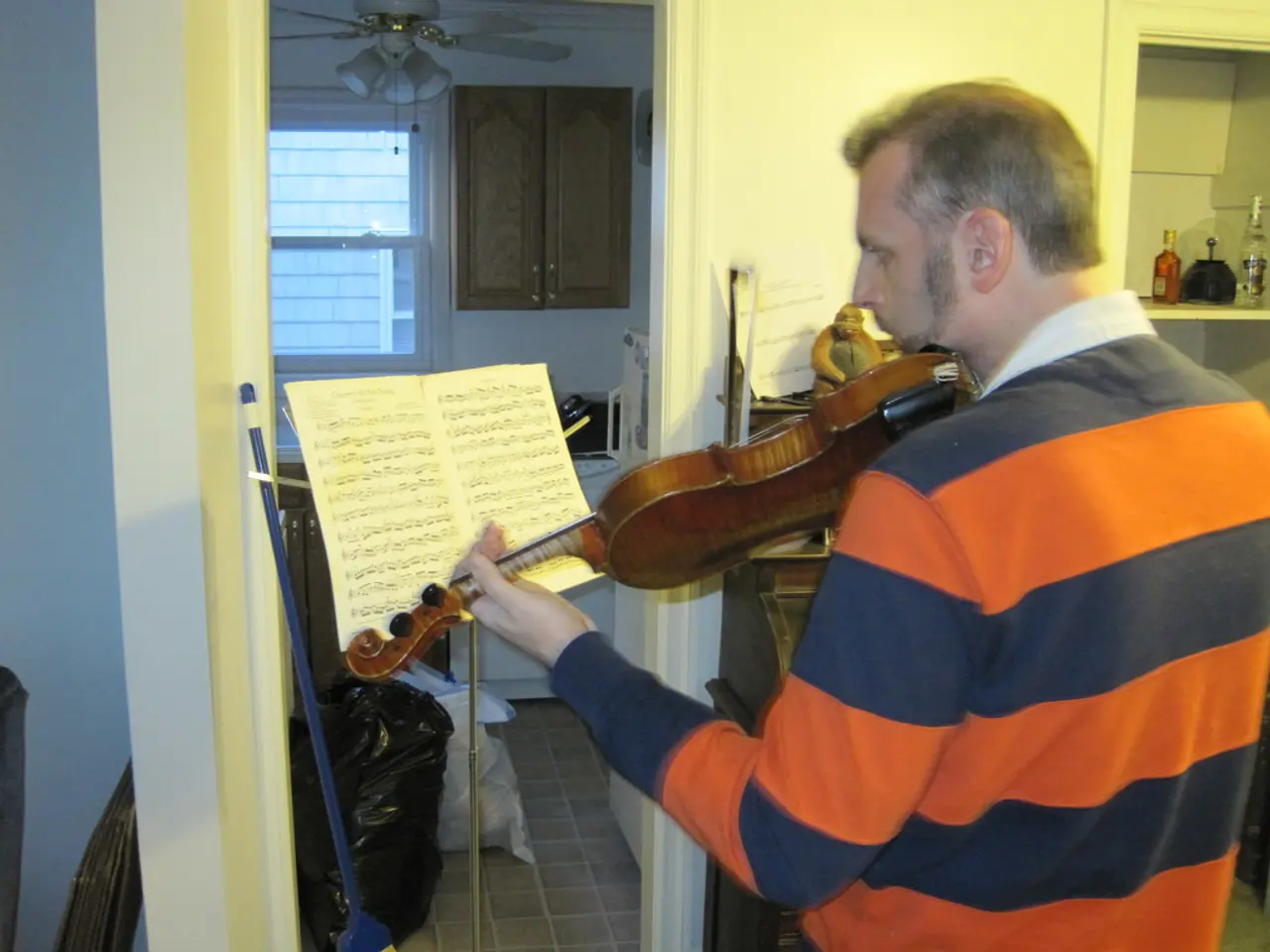Question: Is it necessary to enforce age verification for engaging in online activities such as gaming, social media usage, and viewing mature content?
In the digital age, the debate surrounding age verification for adult content and social media platforms is gaining momentum, with the UK's Online Safety Act serving as a catalyst for this discourse. This legislation, aimed at protecting children online, has led to an increase in the use of Virtual Private Networks (VPNs) and raised concerns about privacy, censorship, and the effectiveness of these measures.
The photo mode of the video game Death Stranding, for instance, has been used to bypass Discord's k-ID system, while many individuals in the UK have resorted to using VPNs to view mature content due to age verification requirements. Even YouTube, despite arguing it isn't a social media platform, will still apply the legislation, albeit focusing on preventing children from creating accounts rather than viewing mature content.
However, the implementation of age verification systems, often demanding official IDs or biometric data, poses significant privacy and security risks. Personal data theft, surveillance, and chilling effects on adult users unwilling to disclose sensitive information are just some of the concerns. This could potentially limit lawful adult access and raise concerns about government overreach and data abuse.
On social media platforms and beyond adult content, age verification requirements have sparked backlash about overcensorship and questionable efficacy. For example, Reddit’s compliance with the UK’s Online Safety Act, which included age-gating not only adult content but LGBTQ+ and public health discussions, led to user revolt, workarounds like VPNs, and mass petitions against such mandates. Critics fear these controls push minors towards unregulated, more dangerous parts of the internet rather than effectively protecting them.
The use of VPNs and workarounds to age verification suggests dissatisfaction with current methods. In fact, Proton VPN observed a 1400% hourly increase in sign-ups last Friday, and Google searches for Proton increased 100-fold on the day the UK's Online Safety Act went into effect.
The story doesn't end in the UK. Australia has legislation banning social media use for younger teenagers, which will include YouTube, and more countries may adopt laws similar to the UK's Online Safety Act.
A spokesperson for YouTube stated that it is a video sharing platform with a library of free, high-quality content, increasingly viewed on TV screens. The company argues that it is primarily aimed at protecting the platform from legal troubles, but critics remain unconvinced.
In summary, public and expert opinion reveals a tension between the governments’ child protection aims and widespread concerns over privacy loss and data security, unintended censorship of protected speech and diverse communities, questionable efficacy that may drive youth to unsafe content elsewhere, and practical challenges on major platforms like Reddit and Pornhub. This indicates broad skepticism about whether age verification laws, as currently implemented, successfully balance safety with rights and freedoms online.
[1] Free Speech Coalition v. Paxton [2] The Age Appropriate Design Code: a new era for children's online privacy [3] Reddit users revolt against age-gating [4] The UK's Online Safety Bill: A New Era for Internet Regulation [5] The Online Safety Bill: A New Era for Online Safety in the UK
- The rise in usage of Virtual Private Networks (VPNs) and the increase in concerns over privacy, censorship, and the effectiveness of age verification systems can be seen in the gaming world, as some users have used the photo mode in Death Stranding to bypass Discord's age restrictions.
- The implementation of age verification requirements is not limited to social media platforms; even desktop platforms like YouTube, which argues it's primarily a video sharing platform, will comply with such legislation.
- The use of age verification systems, often requiring official IDs or biometric data, has sparked debates about policy-and-legislation, politics, and general-news, with concerns over potential privacy breaches, government overreach, and data abuse.
- The discourse surrounding age verification for adult content and social media platforms has extended to the wider entertainment industry, with platforms like Reddit facing backlash over age-gating not only adult content but LGBTQ+ and public health discussions.
- The concerns over age verification systems are not just confined to the UK, as countries like Australia are considering similar legislation, raising questions about how effective these measures will be in protecting children while balancing rights and freedoms online.
- The Free Speech Coalition, The Age Appropriate Design Code, Reddit users revolt, and the UK's Online Safety Bill are among the many discussions and debates surrounding this issue, indicating a broad skepticism about whether age verification laws, as currently implemented, successfully balance safety with rights and freedoms online.




![Movie Showcase: Berlin Ballad [1948], Showcased by Mark Reeder in Berlin](/en/content/images/size/w1280/format/webp/20250812055659_post-wwii-berlin-comedy-rare.jpeg)


